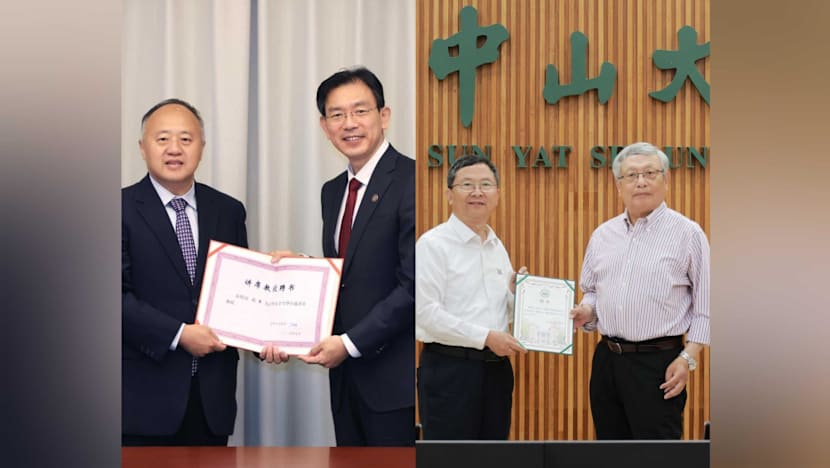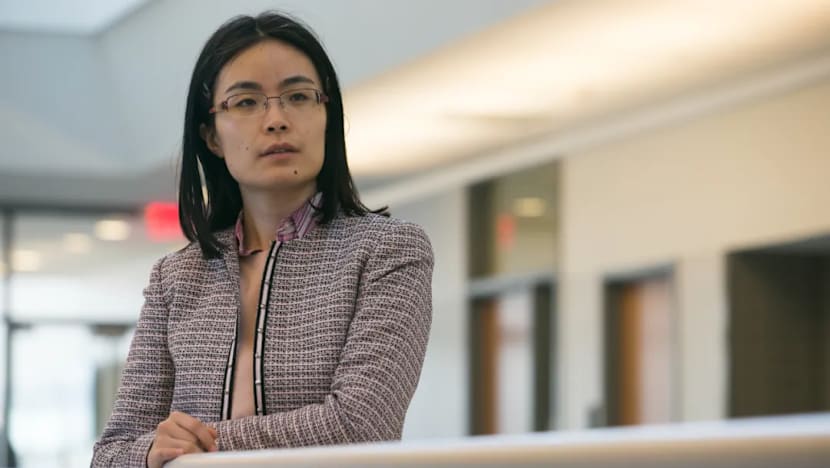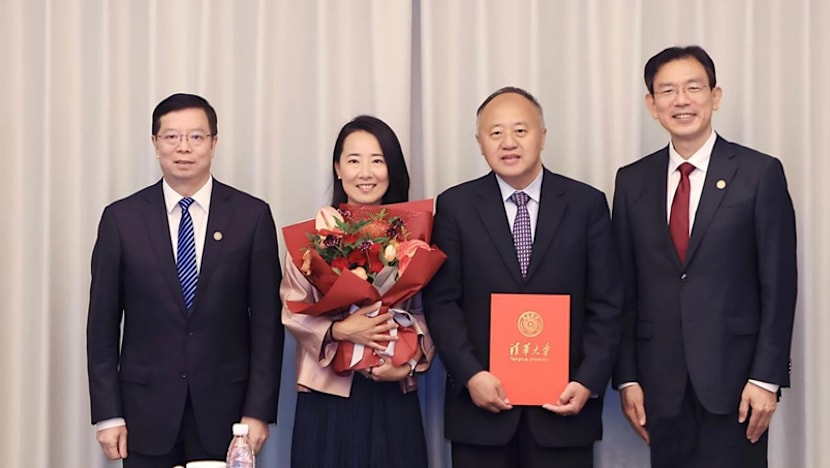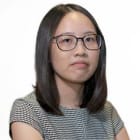analysis East Asia
Reverse brain drain: What’s drawing Chinese researchers back from the US?
Analysts note a “slow acceleration” in Chinese researchers returning from the US this year amid tighter American visa and funding rules. China has also launched a K visa to attract foreign science and tech talent.

Liu Jun (first from left) receives his appointment certificate from Tsinghua University president Li Luming, while Zhang Yitang (first from right) receives his letter of appointment from Sun Yat-Sen University president Song Gao. Both are among the top Chinese academics who have returned to China after decades in the United States. (Photos: Tsinghua University, Sun Yat-Sen University)

This audio is generated by an AI tool.
SINGAPORE: A reverse talent brain drain is underway, analysts say - which sees top Chinese talent, including scholars, academics and researchers returning home after decades of success in the US, driven by better offers and career opportunities in China’s universities and start-ups.
Experts note a “slow acceleration” of this trend throughout 2025, as more researchers return from the US. China also launched its new K visa category on Wednesday (Oct 1), aimed at attracting young foreign tech and science talent.
Several prominent Chinese figures, including top Harvard mathematician Liu Jun, award-winning computer scientist and blockchain expert Chen Jing and rising AI star Fu Tianfan, have since left the US and returned to China to take up roles in prestigious institutions in cities like Beijing, Nanjing and Shenzhen.
This trend is “not a sudden surge” but one that has been in the making for a while, said Lizzi Lee, a research fellow at the Asia Society Policy Institute’s Center for China Analysis in New York.
It is particularly prominent among “early and mid-career Chinese scientists”, Lee noted - those who have built up “tenure-track or significant industry experience in the US” but are now being enticed by stronger opportunities back home.
Several forces are driving the move, Lee told CNA.
“In the US, visa restrictions, rising costs for H-1B applications, and cuts to federal research funding have made the environment less welcoming (for) many Chinese-born scientists,” Lee said, factors that would “limit their career progression”.
Also playing a role in “shifting the balance” is China’s expanding investment in science and technology, Lee said.
“The Chinese government has been explicit about making science and technology a national priority. Support has taken the form of well-funded research labs, generous government-backed capital, even subsidised housing and family relocation support,” she said.
“In addition to being younger and more focused on career advancement, Chinese returnees from the US also see promise in an ecosystem that seems to be producing ever more breakthroughs such as AI (advancements) with DeepSeek.”
AI, robotics and biotech are sectors where the country would benefit most from returnee talents, she added.
“This year’s movement feels different … with Beijing’s policy dangling significantly more carrots or opportunities, and returnees seeing themselves as advancing careers rather than retreating from hostility,” said Lee, comparing the returnee trend to that seen during the China Initiative.
The 2018 programme, launched under US President Donald Trump’s first term, targeted Chinese espionage and intellectual property theft and investigated academics over whether they disclosed financial ties to Beijing.
The initiative was halted under the Joe Biden administration after critics said it led to racial profiling and a culture of fear that chilled scientific collaboration.
“Many returning today are not doing so because of direct coercion or immediate discrimination, as was often the case at the height of the China Initiative, but rather because they perceive China as (becoming) increasingly competitive in both resources and opportunities,” Lee said.
Official figures on returnees are unavailable due to limited data.
“Several Chinese scientists have left the American system but these are just largely anecdotal at this point in time,” said Alwyn Lim, an associate sociology professor at the Singapore Management University (SMU).
“We are not seeing any mass exodus of intellectuals to other parts of the world,” he added.
TIME TO GIVE BACK?
Chinese scientists who left the US said they wanted to share their experience and knowledge with the next generation in China.
Acclaimed Chinese computer scientist Chen Jing, had spent 15 years in the US pursuing higher education degrees such as her PhD at the Massachusetts Institute of Technology (MIT) in 2012 under the mentorship of Silvio Micali, a Turing award laureate.
“I simply wanted to conduct the best research (and) at the time, the best research in computer science was in the US,” Chen said of her time spent in America.
In January, Chen announced that she had decided to join the prestigious Tsinghua University in Beijing as a full-time professor.
In a video message posted on the university’s official WeChat page, Chen said she was “committed to training younger researchers in computational economics, equipping them to identify and solve real-world societal problems”.
Her motivation to return to China was also to fill a gap in the country’s blockchain technology research, Chen said, adding that it was still “lacking some core theoretical support”.

“Now it is time to share the experience I’ve gained in academia and industry with my students in China, and leverage my international influence to support Tsinghua and its computer science department,” Chen said.
Also now at Tsinghua University is former Harvard mathematician Liu Jun, whose decision to return to China at the age of 60 was driven by his love for education and science and also, a degree of patriotism.
He accepted a prestigious chair position with the university in August and was appointed “Tsinghua University Xinghua Distinguished Chair Professor”, its highest title.
In an interview with the South China Morning Post (SCMP), Liu said his decision to leave the US had "nothing to do with” Trump and that he had considered other offers like one from Wharton School - the business school of the University of Pennsylvania but ultimately decided to join Tsinghua.

Another Chinese mathematician, Zhang Yitang, left the University of California, Santa Barbara (UC Santa Barbara) to join Sun Yat-sen University in Guangzhou.
Zhang has openly shared his feelings about returning home “in light of recent international political issues that have strained China-US relations”.
“Many Chinese scholars and professors in the US have already returned, and many others are still considering it,” Zhang said in an interview with Chinese broadcaster Phoenix TV, describing it as “a positive trend”.
“My field (mathematics) has not been greatly affected, but Chinese researchers in computers, chips or anything related to the military need to be especially careful,” Liu said, adding that the US was especially “strict about these areas now”.
Chinese AI expert Fu Tianfan, who studied and worked in the US for several years, announced that he was leaving a promising academic career in Troy, New York, to return to China.
Fu joined Nanjing University’s prestigious School of Computer Science in December 2024.
“Nanjing University combines a rich cultural heritage with strong leadership in the natural sciences. Its broad strengths in basic science offer fertile ground for my research in applying artificial intelligence to accelerate scientific discovery,” he told SCMP in an interview upon his return to China.
ASIA’S REVERSE BRAIN DRAIN
Since Trump’s return to the White House, Chinese academics and international students in the US have faced sharper scrutiny and increasing hurdles like a previous plan to revoke Chinese student visas, which stoked fear and anxiety among Chinese students across US campuses, prompting many to rethink where to build their lives and early careers.
Returning Chinese intellectuals would “bring back not only tech and expertise but also international credibility and networks, potentially enhancing China’s bid to lead in tech”, said Asia Society’s Lee.
She also noted that China is “positioning itself” as the world’s largest laboratory for new technology.
The “scale of government-led research and development initiatives and investment, speed of implementation and the advancements especially in applied research” are all big draws for those looking to leave the US, Lee said.
Significant losses for the US would be felt most in sectors like computer science, life sciences, and advanced manufacturing, Lee added, fields dominated by Chinese-born researchers and engineers.
Experts said Singapore and other countries in Asia stand to benefit from the reverse talent drain.
“Research institutions in these regions are already among the world’s top universities and their existing national contexts are largely neutral or at least less polarised than in the West, making them conducive environments for scientific research and advancement,” said SMU’s Lim.
Writing in a CNA commentary on Oct 1, Chua Yeow Hwee, an assistant economics professor at Nanyang Technological University (NTU), also deputy director of NTU’s Economic Growth Centre, noted how changing rules and environments are “reshaping the choices of firms and workers”.
“For professionals, it alters expectations about which countries offer security and long-term opportunity,” Chua said, adding that “the real contest was not about offering the highest salaries or the largest markets - it was about trust”.
Countries are also “innovating with faster approvals and new pathways, and the race for talent is intensifying”, Chua added.
However, Lim cautions against reading too much into the departures of Chinese academics and scientists.
“There have been disruptions to the funding of projects but nothing large or systematic enough to prompt a brain drain from the American academic system,” Lim said, noting that the impact of Chinese experts leaving the US at the moment seems “minor”.
It is also unclear if disruptions in research funding would affect “high-quality research projects”.
US institutes are still “very robust”, said Lim, citing their long tradition of research excellence and a concentration of top talent.
“Their commitment to freedom of speech and inquiry are also positives that do not translate well to other regional contexts that may prioritise other national goals rather than research freedom,” said Lim.
Asia Society’s Lee also highlighted China’s “complicated” attitude towards overseas returnees.
“It also has a security-first lens in many cases, and there are anecdotes of mistrust of returnees,” she said.
Furthermore, state capital is “less patient” and more risk-averse than advertised, so funding would still be a concern for frontier research.
“These structural issues complicate China’s innovation trajectory: The country can attract world-class talent - at least on the surface - but sustaining long-term creativity is harder,” she said.



















